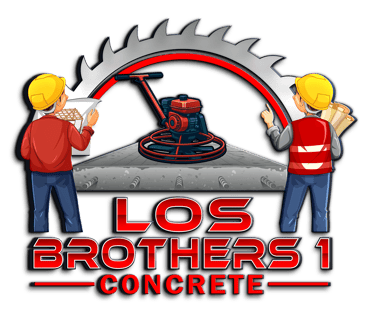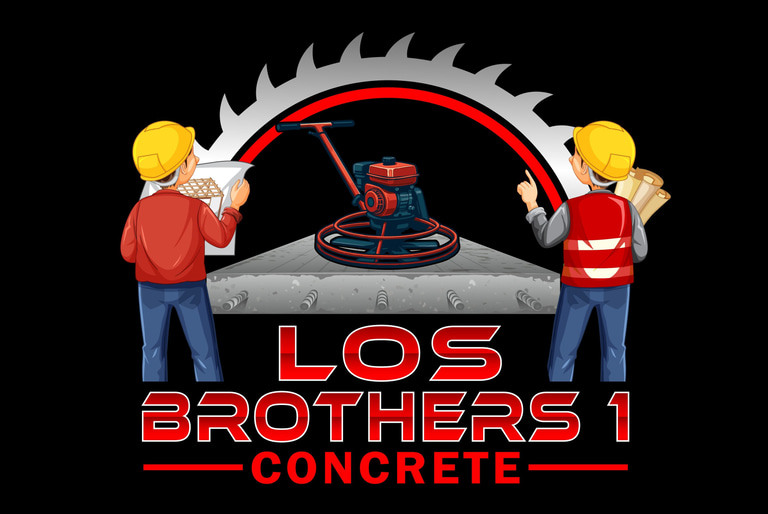CALL US TODAY! → (863) 348-2601 / (863) 257-1120
The Ultimate Guide to Concrete Slabs for Residential and Commercial Use
Learn why concrete slabs are the strong, stable base every great project needs.
7/27/20254 min read


What are Concrete Slabs?
Concrete slabs are horizontal structural elements that provide foundational support and surface functionality in various construction applications. Composed of a mixture of cement, water, aggregates, and sometimes additives, concrete slabs are a versatile choice for both residential and commercial buildings. Their strength and durability make them an essential component in modern construction, offering stability that is necessary for the integrity of structures.
There are several types of concrete slabs, each designed to cater to specific construction needs. One of the most common types is the slab-on-grade, which is poured directly on the ground. This design is frequently utilized for residential projects, such as single-family homes or garages, where it serves as both a foundation and the floor surface. The slab-on-grade concept reduces excavation costs and streamlines the building process while providing reliable support.
In contrast, elevated slabs are typically used in multi-story buildings and structures requiring additional height clearance. These slabs are supported by beams or columns and provide a structural floor that can accommodate upper levels. Elevated slabs are often reinforced to withstand dynamic loads, making them ideal for commercial applications like offices, shopping centers, and warehouses.
Another important type is precast slabs, which are cast in controlled environments and transported to the construction site for installation. This method allows for improved quality control and a reduction in on-site labor. Precast concrete slabs are commonly used in parking garages, elevated walkways, and modular buildings, providing a quick and efficient building solution.
Overall, concrete slabs play a crucial role in the framework of buildings and structures, ensuring that they can withstand the demands of everyday use while contributing to the overall design and functionality of residential and commercial spaces.
Benefits of Using Concrete Slabs
Concrete slabs are increasingly recognized for their numerous advantages in both residential and commercial construction projects. One of the primary benefits of concrete slabs is their remarkable durability. When properly installed, these slabs can withstand considerable weight and resist various environmental stresses, such as shifting soil or changing weather conditions. This inherent strength not only enhances the structural integrity of buildings but also ensures longevity, making concrete slabs a smart investment that can serve for many years without requiring replacement.
Low maintenance requirements further contribute to their appeal. Unlike other materials, concrete slabs do not require regular upkeep such as painting or sealing, which can be both time-consuming and costly. With minimal need for maintenance, property owners can enjoy significant savings in terms of both labor and material costs. Routine cleaning is usually sufficient to keep the surface in good condition, reinforcing its status as a practical choice for various applications.
Fire resistance is another significant advantage of concrete slabs. In comparison to wooden alternatives, concrete does not ignite easily, providing an extra layer of safety for both residential and commercial properties. This feature not only helps protect the occupants and belongings but may also lead to lower insurance premiums due to the reduced fire hazard profile associated with concrete structures.
Lastly, concrete slabs offer enhanced energy efficiency. Their thermal mass allows them to absorb, store, and gradually release heat, helping to regulate indoor temperatures. This characteristic can translate into reduced heating and cooling costs, further reinforcing the financial benefits over time. Hence, the combination of durability, low maintenance, fire resistance, and energy efficiency makes concrete slabs an intelligent choice for enhancing property value while providing long-term cost savings across both residential and commercial applications.
Common Applications of Concrete Slabs
Concrete slabs are a fundamental component in both residential and commercial construction, providing a durable and versatile foundation for various structures. One of the most common applications is in garages. A concrete slab serves as a strong base that can support the weight of vehicles, tools, and equipment. Additionally, the solid surface makes maintenance easy, allowing for efficient cleaning and organization.
Sheds often benefit from concrete slabs as well, as they provide a stable base that protects stored items from moisture and pests. By utilizing a concrete slab, shed owners can ensure a longer lifespan for their structures, as it helps to prevent water-related damage caused by ground moisture.
In residential settings, concrete slabs are prevalent in homes, particularly in basements and foundations. A poured concrete slab creates an effective barrier against ground moisture, contributing to a dry living environment. Furthermore, these slabs are customizable, giving architects and homeowners the freedom to design layouts according to specific needs, ranging from simple to complex configurations.
Patios and outdoor spaces are also frequently constructed using concrete slabs. The smooth surface offers an aesthetically pleasing area for leisure activities such as dining and entertaining. With various finishing options available, homeowners can enhance the look of their patios while benefiting from the inherent strength and durability of concrete. Moreover, concrete slabs can be designed to support outdoor structures such as fire pits or pergolas.
In commercial buildings, concrete slabs are indispensable. They are often used in flooring systems, providing a robust surface capable of withstanding heavy foot traffic and substantial equipment loads. The adaptability of concrete slabs allows for easy modifications to accommodate changing business needs, enhancing their functionality. In industrial facilities, slabs are engineered to support heavy machinery, showcasing their load-bearing capacity and reliability in demanding environments.
The Installation Process: Why Professional Help Matters
The installation of concrete slabs involves a series of critical steps that require precision and expertise to ensure a successful outcome. The first phase is site preparation, which entails clearing the area of debris, vegetation, and any other materials that may interfere with the installation. Professionals utilize heavy equipment to accurately level the ground, creating a solid foundation that is essential for the integrity of the concrete slab.
Next, setting forms is a crucial step where wooden or metal frames are erected to contain the wet concrete. These forms are meticulously measured to ensure that they are level and properly aligned. Any deviation during this stage can result in uneven surfaces or misaligned slabs, which can lead to significant structural issues down the line. Experienced contractors employ tools and techniques that guarantee the accurate placement and stability of these forms.
Once the forms are in place, the pouring of the concrete begins. This step requires the skill of a professional team who can manage the flow and distribution of the concrete mixture appropriately. Proper pouring is vital, as it affects the slab's strength and durability. Additionally, experts can quickly address any concerns such as air pockets or inconsistencies in texture that could compromise the slab's performance.
Curing is the final stage of the process, where the poured concrete is allowed to set and harden while maintaining moisture levels. This phase is critical for achieving maximum strength and durability; professionals understand the specific curing times and conditions required for different types of concrete. Their knowledge minimizes the risk of cracking and shifting, ensuring that the slab remains stable over time. By hiring a skilled team for the installation of concrete slabs, homeowners and businesses can significantly enhance the longevity and safety of their structures.
Follow Us On Social Media
Contacts
Subscribe To Our Newsletter
Copyright © 2025 Los Brothers 1 Corp – "2 Brothers. 1 Strong Foundation!"
Fernando: (863) 348-2601
Rodrigo: (863) 257-1120
Hours
24/7 – We’re available day and night for your concrete needs.


